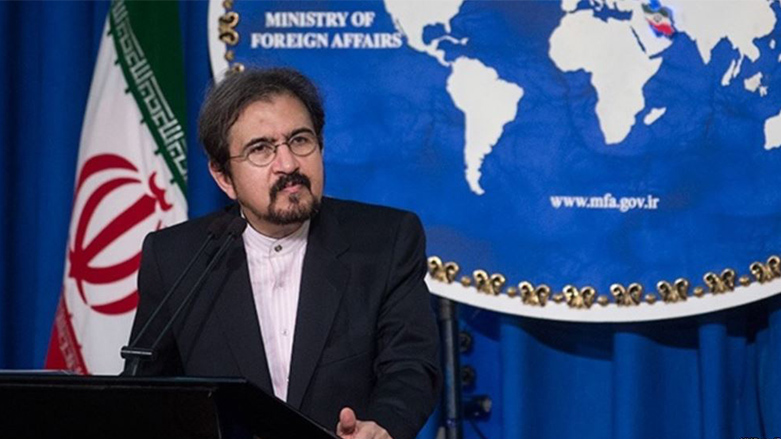Iran wants Syrian Kurds to depend on Damascus: Experts
Iran welcomed calls last Friday by the Kurdish People’s Protection Units (YPG) for Damascus to come to Manbij to stave off a threatened Turkish invasion, according to analysts.

ERBIL (Kurdistan 24) – Iran welcomed calls last Friday by the Kurdish People’s Protection Units (YPG) for Damascus to come to Manbij to stave off a threatened Turkish invasion, according to analysts.
Following the plea, Iran’s Foreign Ministry described it as “an important step [toward] consolidating the sovereignty of the legitimate government of Syria.”
Experts have since argued that Iran wants Kurds to be closer to Damascus and is happy with a potential US withdrawal.
Indeed, the YPG call came after a surprise decision by US president Donald Trump to withdraw troops from Syria. So far, Syrian troops have not entered Manbij.
Saeid Jafari, an Iranian journalist and analyst, told Kurdistan 24 that Iran “does not welcome the Kurdish independence efforts in the region. We saw the same approach against the Iraqi Kurdistan independence referendum.”
“Iran is doing its best to stabilize Syria under the control of the central government,” he asserted. “When Syrian Kurds ask for support from Damascus, they already know that Iran will advise them to stay under the control of the central government to avoid the dangers of possible attacks by Turkey.”
Arman Mahmoudian, a researcher at the Centre for Strategic and Diplomatic Studies, University of South Florida, agrees with this point.
“So, obviously Iran was skeptical about what was going on in the northeast of Syria,” he noted. “Now, inviting Syrian forces to Manbij and their presence in north would make the Kurds at some point dependent on Damascus, which can be used as leverage for Iran in her further relations with Syrian Kurds.”
According to Mahmoudian, from Iran’s point of view, Syria’s Kurds were an important US ally so “this new development could possibly undermine the US role in Syria.”
“Now, there is a noticeable chance that Kurds might give up some of their demands and accept part of Damascus requests,” he also added.
Kamran Matin, a senior lecturer of international development at the University of Sussex who specializes in Iranian and Kurdish studies, affirmed that Iran would look for “(…) a [negotiated] settlement that is substantive enough to pre-empt a Turkish invasion but minimal enough with respect to Kurdish autonomy so as not to have major implications for its own treatment of Iranian Kurds.”
Iran is “opposed to a large-scale Turkish invasion since that would undermine the Syrian regime’s sovereignty” Matin explained, noting that President Bashar al-Assad’s “restoration [of power] was the main aim of [Tehran’s] intervention in Syria.”
This is also because Turkey is a key NATO member and a major Sunni power.
Matin also argued that the “strategic US-Turkey rapprochement that seems to be underway and any major gain for Turkey would be detrimental to Iran’s long-term interests in the region.”
US president Donald Trump earlier said he was coordinating his withdrawal with Turkey, with Matin suggesting the US could now “pressure” Turkey to “come onboard” regarding anti-Iran sanctions now that the US has “met Turkey’s demand” in northeastern Syria.
The academic concluded that for Iran, a total alienation of Syrian Kurds from the Syrian regime is “also undesirable as it will naturally make Kurds amenable to other rival states’ offer of support.”
He says this would force Iran and the Syrian government to redirect major military assets “to re-take the vast Eastern Euphrates region in a battle which won’t be either easy or quick.”
Nevertheless, it is still unclear if the US withdrawal would benefit Iran.
Senator Lindsey Graham tweeted on Sunday that the US president will make sure that “Iran doesn’t fill in the back end” and make sure that their “Kurdish allies are protected.”
“We are focused on a deliberate and controlled withdrawal of forces, taking all measures possible to ensure our troops’ safety while they finish off the remnants of ISIS,” a coalition spokesperson told Kurdistan 24 on Sunday.
Editing by Nadia Riva